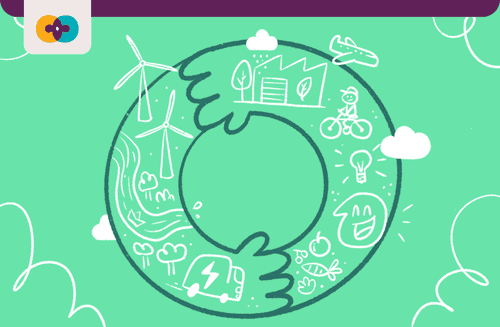
10/02/2022
Circular Economy and Climate Change
Prof. Dr. Edson Grandisoli, Pedagogical coordinator of Circular Movement
Climate change is considered by many researchers and authors as the greatest global challenge today. Climate change and its effects are already being felt by millions of people, especially those who are most vulnerable.
But after all, how to think and act in the face of climate change more broadly, that is, beyond small (and important) individual actions?
Looking at the world scenario, there are clearly some factors that need to be rethought if we really want to create (and recreate) our present and future as a civilization, and the Circular Economy, as a model, presents some fundamental change points to guarantee the transition to a more stable climate and for the construction of more just and sustainable societies.
Reduce the pressure of exploration on the Earth's natural heritage, eliminate waste and create alternative materials to the so-called non-renewable resources, such as ores, for example.
Structuring the different means of production of consumer goods within a logic of lower losses and waste and, crucial point of the Circular Economy, being part of a true chain of reuse of different materials, which would directly collaborate for the first point mentioned previously. In addition, to look more assertively at our energy and electrical matrix, valuing and encouraging the acquisition of energy from renewable sources, decarbonizing our economic activities.
Rethink our consumption. To buy or not to buy? What to Buy? Who to buy from? How much to buy? These are just a few questions that must be answered before the consumption of goods and services in the direction of reduction, requalification and creation of a new culture less focused on things and more on quality relationships.
Change our way of discarding. The waste we produce every day directly contributes to climate change. Recycling and reusing are actions that must be present throughout the production and consumption chain. In other words, the responsibility for reducing the production of waste belongs to everyone, companies, businesses, governments and people. Reuse and recycling reduce pressures on natural resources and the climate.
In this way, the technological and behavioral changes stimulated by the Circular Economy can directly contribute to the reduction of the emission of the so-called Greenhouse Gases (GHG). It is important to note that co-responsibility is a central point in this change process. All sectors of society can and must contribute to the transition to a more circular, inclusive economy that helps maintain climate stability.

